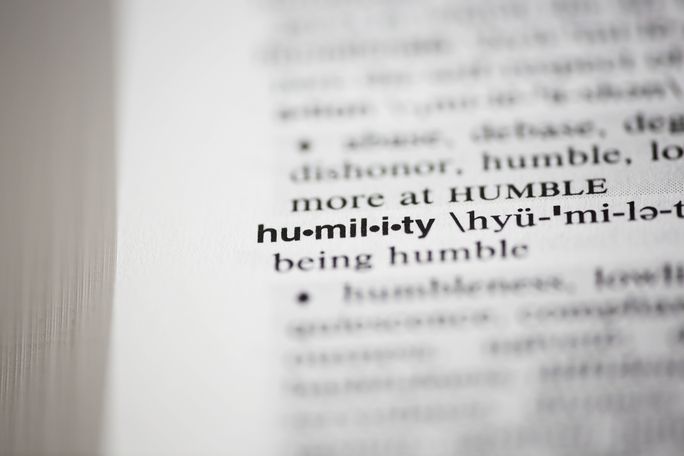What Does God Require of You? Walk Humbly
The final requirement in Micah 6:8 refers to a very scarce virtue: humility. Its nemesis, pride, is much more prevalent. How can you walk humbly with God?

The first two things God requires of us in Micah 6:8 are to “do justly” and “love mercy.” In parts 1 and 2 of this short series, we covered ways to practice these virtues in our lives. Now what?
Some may reply: “Well that is me. I’m the most just, fair, forgiving, merciful and all-around amazing person I know.”
But something is missing: humility. It is a quality as scarce as it is abused.
We often see it abused by politicians when they “humbly accept” nominations and elections, but then go on to describe how much better they are than the other candidates.
Walking humbly with God is perhaps the most difficult requirement in the list simply because it puts God in direct competition with a fierce and unrelenting competitor: me, myself and I.
God is the center of the world, not us
“Humble yourselves in the sight of the Lord, and He will lift you up” (James 4:10).
Walking humbly with God is impossible if we don’t acknowledge that He is the omnipotent, omniscient and eternal God, while we are a weak combination of blood, flesh and bone. This doesn’t mean we should think of ourselves as worthless, but it should make us ask the question that King David asked: “What is man that You are mindful of him?” (Psalm 8:4).
Walking humbly with God is impossible if we don’t acknowledge that He is the omnipotent, omniscient and eternal God, while we are a weak combination of blood, flesh and bone.
David realized his own insignificance as he gazed out at the vastness of space and was humbled by it. We have to realize our relative insignificance and dependence on the God who made everything, knows everything and has a plan for everything. He is absolute perfection, while we make mistakes (some big, some small) on a daily basis. Seeing ourselves in comparison with God is essential to walking humbly with Him.
But pride has trouble with this. Pride makes us think of ourselves as the best, smartest and most spiritual flesh, dust and blood on the planet—or at least better than other bags of flesh, dust and blood. We all must overcome this tendency toward pride and instead see ourselves as the frail, weak human beings we are.
But we also have to be balanced. Though God doesn’t want us to be prideful, He doesn’t want us to feel worthless either. We should try to strike the proper balance between realizing our weaknesses and trying to grow and fulfill our God-given potential to move toward perfection (Hebrews 6:1).
Why is this a requirement?
“God resists the proud, but gives grace to the humble” (James 4:6; 1 Peter 5:5).
Pride is an abomination to God (Proverbs 16:5; 6:16-17). He understands pride’s destructive capabilities because He saw what it did to Lucifer—transforming him from a beautiful angelic servant into a corrupted, evil enemy of God and His servants (1 Timothy 3:6). Just as pride led to Lucifer’s fall, it can lead to our fall and destruction (Proverbs 16:18).
God loves us, and He doesn’t want to see us destroy ourselves with pride.
How can we make sure we’re fulfilling this requirement?
- Be open and honest about weaknesses (fight vanity). This doesn’t mean we have to share every weakness of our lives with others, but it does mean we should avoid the temptation to make ourselves appear better than others. For example, do we use Facebook and social media to make ourselves look unrealistically better than we are? Do we try to cover up our weaknesses and imperfections so that nobody would ever know we are a fallible human being?
- Admit being wrong (fight stiff-necked stubbornness). Since we are imperfect human beings and do make mistakes, we should be comfortable saying these three simple words: I was wrong. Taking a stiff-necked and stubborn approach to our own wrong actions and thinking actually hurts us, because it often causes us to lose credibility with others. Having the ability to admit wrong and say I’m sorry—especially to God through regular repentance of our sins—is essential to walking humbly with our God.
Walking humbly with God is the essential glue keeping the requirements together.
Read parts 1 and 2 of this series: “What Does God Require of You? Do Justly” and “What Does God Require of You? Love Mercy.”
Date Posted: April 23, 2018



